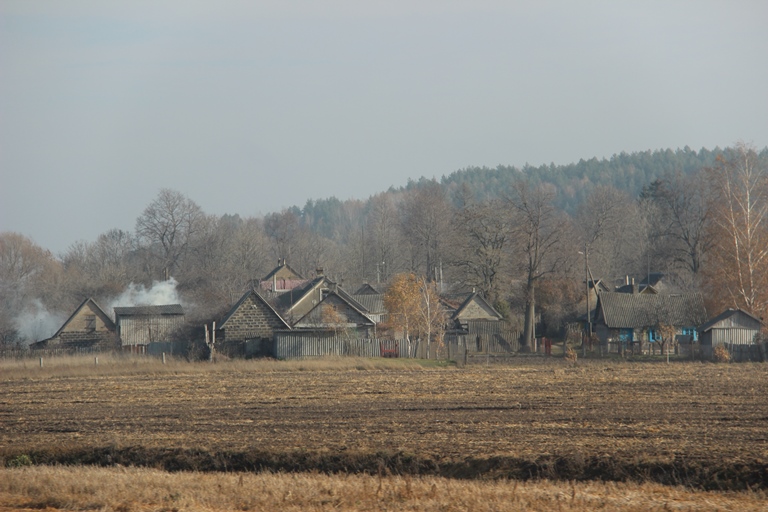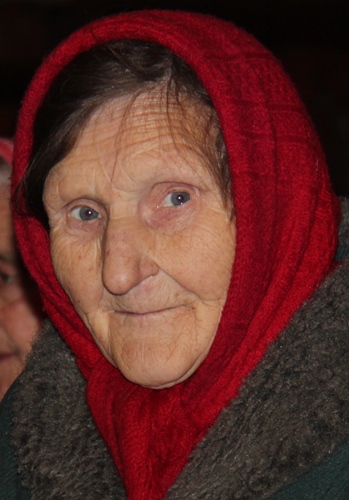|
In Belarus, ghost of Soviet era is very much alive "The Church was not merely persecuted during Soviet times, but literally destroyed. Churches were made into cinemas, warehouses and sports halls. Priests were sent to gulags in SIberia or murdered." Magda Kaczmarek, a senior staff member of the international Catholic charity Aid to the Church in Need, visited the former Soviet Republic of Belarus earlier this month. In this interview, she recounts her experiences visiting all four of the country’s Catholic dioceses. What most struck you in Belarus? It is common knowledge that the Belarusians live under a dictatorship. The country seems very isolated. You still feel the presence of communism. In the cities as well as in rural areas, monuments that honour Lenin or the soldiers of the Red Army, tanks and airplanes recall former times. I was raised in socialist Poland and felt like I was back in this period of Poland’s history while I was in Belarus How are people coping? You feel that the people have little trust in each other. Uncertainty
and mistrust are everywhere. In general, order and cleanliness prevail, but
much of it feels very sterile. Especially in rural areas, everything is grey on
grey, just dismal. Life there is very dreary. When travelling across the
country, you see few cars. A quart of gasoline is about a dollar, bu but the
average income is only $300 a month. The Belarusians, most of whom work in
agriculture, do make a modest living, but they don’t have many options. The people have little access to information from outside of the country. And alcohol is cheap. Belarus has the highest consumption of alcohol in all of Europe. In rural areas there are villages that are just like ghost towns. There is widespread migration into the cities, which is why even smaller towns are developing rapidly. This is of course a challenge, also for the pastoral care offered by the Catholic Church, to which, according to official sources, about 12 percent of the population of 9.5 million belong. How restricted is the Church in its movements? Many did not expect that freedom of religion would be honored after the fall of the Berlin Wall in 1989 and after the country became independent in 1991. After all, for 70 years efforts had been made to completely eradicate any belief in God. The Church was not merely persecuted during Soviet times, but literally destroyed. Churches were made into cinemas, warehouses and sports halls. Priests were sent to Gulags in Siberia or murdered. However, there are still Catholics today who rely on the Church for support, both in urban and rural settings. Among them are many who are searching and people who are open to God, but who were not able to or not allowed to live out their faith for any number of reasons. The Church is committed to finding them, reminding them of their Catholic roots and offering them pastoral care once again. It is wonderful to see grandmothers who have managed to hand on the faith to their grandchildren. One of the greatest challenges is providing pastoral care in matters
concerning children, adolescents, marriage, and family. In Belarus,
70 out of 100 marriages end in divorce. However, vocations can only grow within
intact families that practice their faith. And candidates for the priesthood
should be taught by well-educated professors. Another great need is building of
small churches and chapels for new communities. One question that remains
unanswered concerns the restoration of the Church property that was confiscated
by the state after World War II. In many cases, the granting of parcels of land
free of charge is a positive sign. However, it can take years to actually receive
building permits. The bureaucracy is making it very hard on the clergy. How does the Church function, as it cannot rely on people’s contributions? The state does nothing to finance the Church; it is therefore largely dependent on outside help. The state does, however, welcome the Church’s social commitment, such as its soup kitchens, nurseries or pro-life activities. But there is no state funding made available for any of these initiatives. Belarus has yet to conclude a concordat with the Holy See. Priests from other countries may only stay in the country for a few months, which leads to shortfalls in pastoral care because there is a great shortage of native priests and religious. The visas of foreign clergy are often not renewed Examples of the Church’s support for society as a whole are the care for homeless people and families, as well as counselling services for pregnant women. Along with Russia, Belarus is among the countries with the highest abortion rates. This is a pressing problem. In carrying out this work, the Church takes care of everyone, irrespective of religious affiliation. Anyone who needs help finds a ready welcome Belarus Orthodox leader affirms strong bond with Catholic Church METROPOLITAN Pavel Ponomaryov of Minsk and Slutsk, Patriarchal Exarch of all Belarus, has stressed the strong bond between the Orthodox and Catholic Churches in Belarus. In a Nov. 14, 2014 interview with Aid to the Church in Need, the prelate said: “we have not forgotten that the Catholic Church helped us when times were difficult.” The Metropolitan confirmed that Christians in Belarus face great challenges. He explained that even now, 20 after the collapse of the Soviet Union, repercussions of the anti-religious propaganda of the past are still palpable. “There are, however, also new dangers—terrorism and forces that call upon humankind to lose all restraint. Orthodox and Catholics have to defend the values of the Gospel. We have much in common,” he said. He continued: “today, a mind-set has taken hold that places the ‘I’ into the foreground and always stresses, ‘take, what you can get.” Children are being raised with this fundamentally egotistical take on life. Christians are called to live in the exact opposite way—to develop the willingness to make sacrifices for others and to give to those who have nothing or very little.” ACN photos: Rural landscape in Belarus; woman in Belarus
|
|
|


